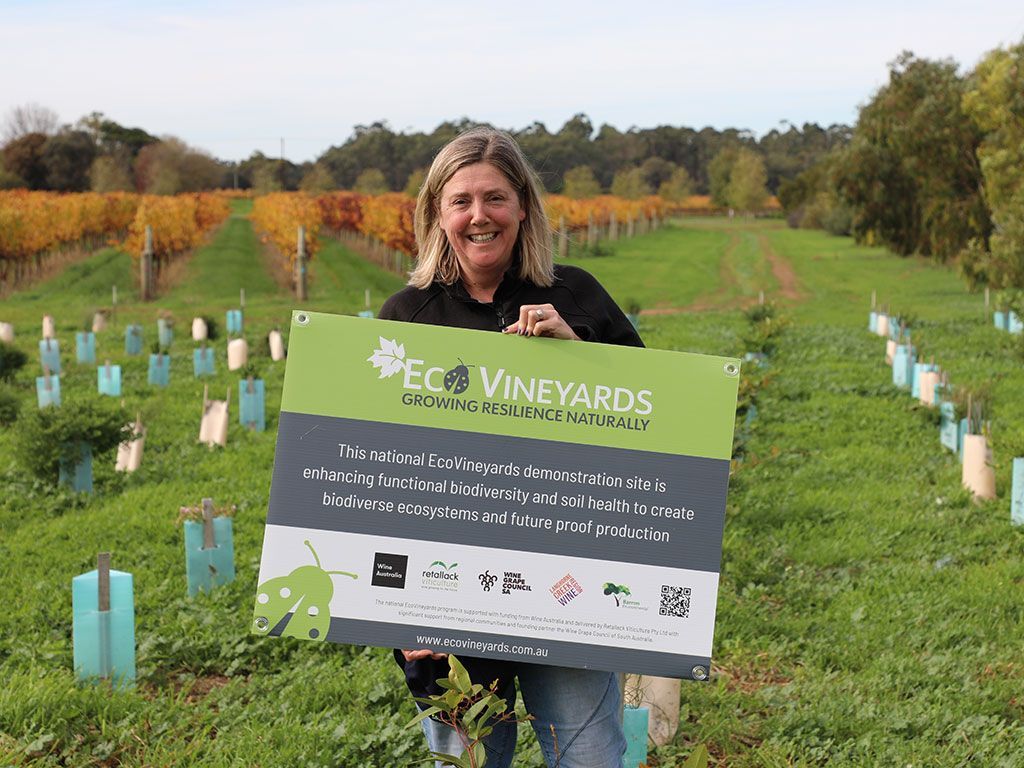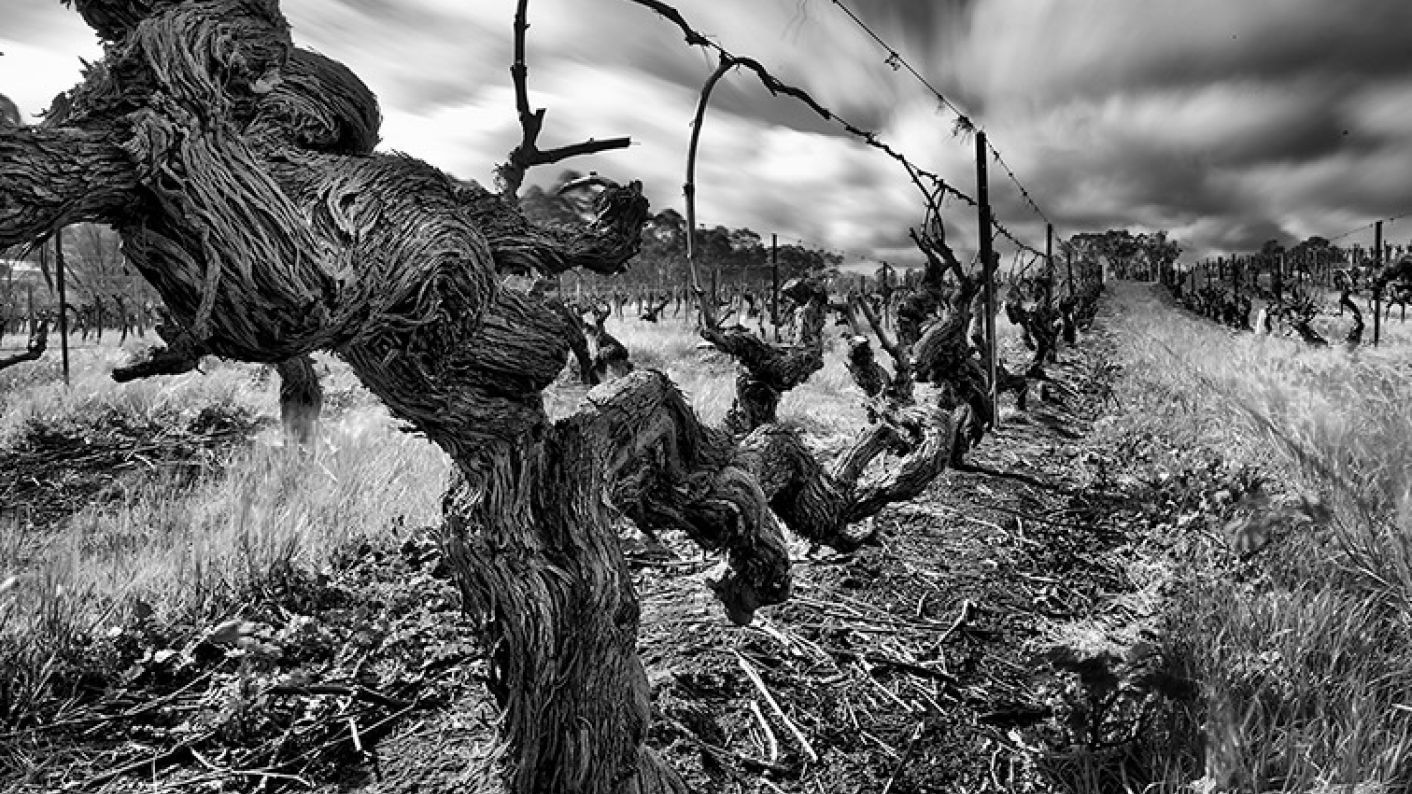EcoGrowers spread the eco-action
Rebecca has been making wine for Bremerton Wines in SA’s Langhorne Creek since 1997 and now owns and runs the business – which incorporates First Pick Viticulture – with her sister, Lucy.
“My motivation to become an EcoGrower was the desire for education around the biodiversity opportunities for our sites, and to be able to surround myself with like-minded people who I could learn from. I wanted to start to put into practice those learnings and see a real impact on the diversity and health of our land,” said Rebecca.
“I do feel a sense of urgency when it comes to vineyard floor management; the phasing out of traditionally used chemicals for weed control spurs us forward with exploring alternative approaches. In addition, anything that can improve soil health and understanding of what is happening in our soil for long term sustainability is high on our radar.”
Since joining the EcoVineyards program, Rebecca has planted natives to improve biodiversity across two vineyard sites. “These have been very successful in establishing and now we are excited to get under the surface and look at the soil health and activity.”
The next project is to establish a native grass and forbs mix on an old vineyard site with an historical invasive weed problem, before they replant vines. The sisters will also look at composting winery marc waste and utilising it for further improved soil health.
Rebecca is one of a growing number of EcoGrowers within the National EcoVineyards Program. EcoGrowers work with local experts to set up a diverse range of demonstration sites in their vineyards to provide local, practical insights.
The National EcoVineyards program is funded by Wine Australia with levies from Australia’s grape growers and winemakers and matched funds from the Australian Government. The program is delivered by Retallack Viticulture Pty Ltd with significant support from regional communities. The program aims to help grapegrowers to improve soil health, establish ground cover plants and increase functional beneficial biodiversity.
Since its inception last year, the program has provided regionally-specific and practical options to help growers improve their sustainability, resilience and profitability. Recently, a biodiversity action plan – which outlines the biodiversity assets located on a vineyard and outlines actions to be taken to promote environmental stewardship on the property – was developed. You can access an editable version of the plan template, summary page and supporting materials.
Regional plant species lists have also been developed. “These native plant community lists have been collated to reflect regional native plant species with insectary benefits that were present prior to the landscape being modified,” explained agroecologist Dr Mary Retallack, founder and National Program Manager of EcoVineyards.




